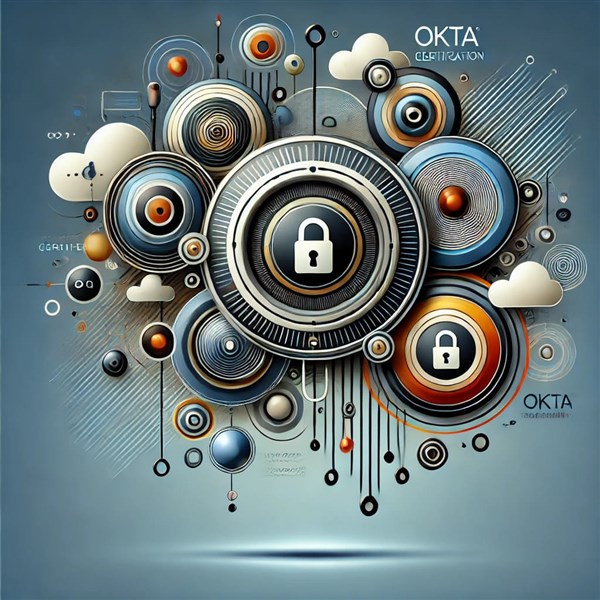
In the world of cybersecurity, identity and access management (IAM) is at the heart of any secure digital infrastructure. As organizations continue to migrate to the cloud and adopt digital-first strategies, securing user identities and controlling access to critical resources becomes paramount. Among the leading IAM solutions, Okta stands out for its comprehensive, cloud-based platform that offers businesses a way to manage user authentication, authorization, and identity securely. For security administrators, Okta certification can open a wide range of opportunities, enhance technical expertise, and provide significant career growth.
In this blog post, we will explore the top five benefits of Okta certification for security administrators and how this credential can help boost your career while enhancing your organization's security posture.
Top 5 Benefits of Okta Certification for Security Administrators
1. Increased Career Opportunities and Marketability
The digital transformation of businesses has made identity and access management a top priority for organizations, leading to an increasing demand for skilled security administrators. With Okta's rapid adoption across industries, earning Okta certification can significantly enhance your career prospects.
For security professionals looking to make a mark in the IAM field, Okta certification opens doors to a range of career opportunities, including roles such as:
- IAM Consultant
- Cloud Security Architect
- Identity Management Specialist
- Security Systems Administrator
- Okta Administrator
Certified professionals are viewed as experts in their field, and companies often prefer or require certification for job applicants in IAM-related roles. As a result, Okta-certified administrators enjoy greater visibility in the job market, positioning themselves as trusted professionals capable of implementing secure, scalable identity solutions. Whether you’re looking to advance within your current organization or pursue new opportunities, Okta certification makes you a highly marketable asset.
Furthermore, Okta’s widespread use across various industries (from healthcare to financial services) ensures that your certification holds value in multiple sectors, enhancing your job search prospects on a global scale.
2. Expertise in Cloud-Based IAM Systems
Okta is known for its robust cloud-based IAM platform, which allows businesses to manage identities, integrate single sign-on (SSO), enforce multi-factor authentication (MFA), and ensure compliance across various systems and applications. As cloud adoption continues to rise, having expertise in a leading cloud-based IAM solution is essential for any security administrator.
Okta certification provides security administrators with the skills and knowledge required to effectively manage and secure cloud identities. This includes learning how to:
- Implement and configure Okta's cloud-based IAM solutions
- Set up and manage secure single sign-on (SSO) for cloud applications
- Integrate and configure Okta MFA for enhanced security
- Automate user provisioning and de-provisioning across applications
- Monitor access to ensure continuous security and compliance
By becoming Okta certified, security administrators gain the technical know-how to manage cloud-based identities and authentication processes effectively. This expertise is especially important in modern enterprises that rely on cloud applications and services. Cloud security, including identity management, is a critical component of an organization’s security strategy, and having Okta certification validates your ability to implement and maintain these systems.
3. Improved Security Posture and Compliance
The rise of data breaches, cyberattacks, and stringent regulatory requirements has made compliance and data protection more important than ever. With Okta certification, security administrators are equipped with the skills to enhance their organization's security posture and meet compliance standards.
Okta provides robust tools that enable administrators to implement advanced security measures such as:
- Role-Based Access Control (RBAC): Ensures that users only have access to the resources necessary for their roles, reducing the risk of unauthorized access.
- Multi-Factor Authentication (MFA): Strengthens access security by requiring users to authenticate using multiple methods (e.g., a password and a mobile device).
- Compliance and Auditing: Okta’s built-in reporting tools allow administrators to track and audit access to systems and applications, ensuring that your organization stays compliant with industry standards and regulations such as GDPR, HIPAA, and SOX.
By learning how to configure these security features during the Okta certification process, security administrators can help protect sensitive data from unauthorized access and ensure that their organization meets compliance requirements. This capability is critical in industries such as healthcare, finance, and education, where data protection and regulatory adherence are not just best practices but legal obligations.
4. Mastery of Automation and Scalability
Modern organizations are looking for scalable and automated solutions to manage the increasing complexity of user identities and access across multiple systems. Okta’s platform is designed to simplify and automate many of the processes associated with IAM, from user provisioning to password resets.
Okta certification provides security administrators with the knowledge and skills to leverage Okta’s automation tools effectively, which can:
- Automate User Provisioning and De-Provisioning: Okta’s system automatically creates, updates, and removes user accounts across integrated applications, saving time and reducing errors.
- Streamline Access Requests: Okta's self-service capabilities allow users to request access to resources while administrators approve or deny access based on predefined policies.
- Centralize User Management: Okta's platform offers a centralized dashboard where administrators can manage user access across multiple cloud and on-premises applications, improving efficiency and reducing manual efforts.
The ability to automate these processes not only makes life easier for security administrators but also improves security by reducing the risk of human error and ensuring that access rights are updated in real-time. Additionally, as businesses scale, the need for automated IAM systems becomes even more critical. Okta's certification empowers administrators to manage a growing number of users and applications seamlessly, which is an essential skill in large enterprises and cloud-first organizations.
5. Hands-On Experience with Real-World Scenarios
One of the most significant benefits of Okta certification is the practical experience that administrators gain while preparing for the exam. Unlike other certifications that may focus purely on theory, Okta certification emphasizes real-world scenarios and hands-on learning. During the certification process, administrators learn to:
- Configure Okta’s Identity Cloud platform to meet organizational needs
- Troubleshoot common IAM-related issues
- Set up SSO and MFA for various enterprise applications
- Integrate third-party applications into Okta’s ecosystem
This practical experience ensures that administrators are prepared for the challenges they will face in real-world environments. Okta’s certification includes exercises, case studies, and simulations that replicate common security and IAM problems, allowing administrators to test their skills in a controlled environment. This type of learning prepares security administrators to implement Okta’s platform in their organizations confidently and handle challenges efficiently when they arise.
Conclusion
In an increasingly complex digital world, securing user identities and controlling access to critical systems is more important than ever. For security administrators, Okta certification offers a valuable credential that provides not only technical expertise but also a competitive edge in the cybersecurity job market.
By achieving Okta certification, security administrators can enhance their career opportunities, master cloud-based IAM systems, improve their organization's security and compliance posture, streamline IAM processes through automation, and gain hands-on experience in real-world scenarios. Whether you're looking to advance in your current role or explore new career opportunities, Okta certification is a proven way to improve your skill set and position yourself as a leader in the growing field of identity and access management.
In conclusion, getting an Okta certification is a wise investment for any security administrator looking to enhance their career. It not only provides a comprehensive understanding of Okta technology but also offers better job opportunities, higher salary prospects, industry recognition, and continuous learning.
If you are looking to get Okta certified, consider Koenig Solutions, a leading IT training company providing certifications in top technology courses. They offer a comprehensive Okta certification program designed to equip you with all the necessary skills and knowledge to excel in your role as a security administrator.







COMMENT